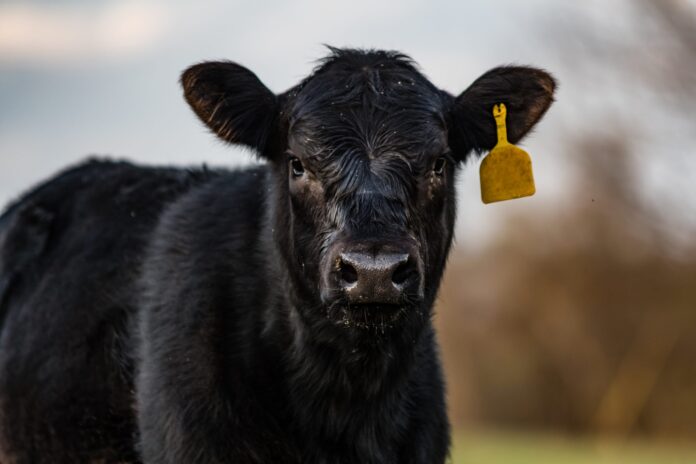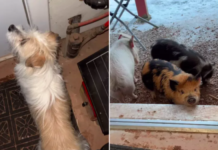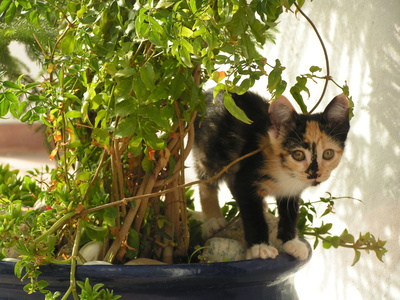Last Updated on October 6, 2023 by Fumipets
9 Black Cattle Breeds: A Closer Look at the Dark Beauties of the Bovine World
Black cattle breeds, known for their striking dark coats, have a rich history and are prized for their robust qualities. In this article, we’ll delve into some of the notable black cattle breeds, exploring their characteristics, origins, and significance in agriculture.
Black Cattle Breeds
Everyone has a mental picture of a cow in black and white someplace. Yet, cows come in a range of distinct natural hues. Cows come in a variety of colors, including brown, white, and black. There are many different kinds of cows. Below are a few cow breeds that are often thought of as being entirely black.
The 9 Black Cattle Breeds
1. Welsh Black Cattle

A British cattle breed known as the Welsh Black Cattle is descended from northern cow varieties that existed before the Roman era. Since more than a thousand years ago, black cattle have been widespread in Wales and Scotland; they were sometimes referred to as “the black gold from the Welsh highlands.”
Welsh Black Cattle were regarded as dairy and beef cows up to the 1970s. Welsh Black Cattle came in two breeds, with the North Wales variety being stockier and kept for beef and the South Wales variety being produced for dairy.
2. Aberdeen Angus Cattle

Scotland is the birthplace of the black cow breed known as the Aberdeen Angus. Angus cattle may be either black or red, although their udders are often white. The Aberdeen Angus breed was developed in Aberdeen, Scotland, around 1824. Since the breed’s formal recognition in 1835, 17% of the UK’s breeding stock in 2018 consisted of Aberdeen Angus cattle.
Over the globe, different communities were exposed to the Aberdeen Angus. There are Angus cattle communities and enthusiasts all over the globe who have gone farther to adjust the breeding of Angus cattle to better fit their locales.
3. Galloway Cattle Breed

One of the oldest and most well-known breeds of beef cattle is the Galloway. The breed got its name from the Scottish Galloway area in the 17th century. Traditional Galloway cattle are black, however some regions now accept red cattle.
During the 1950s, Galloway cattle were being shipped to Canada, America, and Australia and were becoming more and more well-liked among farmers. Because of the foot and mouth outbreak, which decimated the breeding stock, this boom was short-lived. However a more recent rebirth of the breed has been driven by the needs of the beef sector.
4. Brangus Cattle

The Angus and Brahman breeds of cattle were crossed to create the Brangus breed. Brahman cattle underwent severe natural selection to produce higher disease resistance, while Angus cattle are renowned for their superior meat quality.
This combination produces a crossbreed that has been quite successful and is regarded as being exceptionally adaptable in all facets of cattle farming. Brangus cattle do well in milder climes and are resistant to heat and humidity.
5. Black Baldy Cattle Breed

Another hybrid cattle is the Black Baldy. This one transports Angus cattle over the Hereford. Although the red body coat of the Angus cow is replaced with the black from the Angus coloration, Black Baldy animals often have a white face similar to the Hereford. This colour results from the dominance of the black body and white face alleles in cattle.
Black Baldy cows are known to be very good moms. The Black Baldy shows hybrid vigor, a characteristic in which the offspring of crossbred organisms have improved biological traits, making good mothering an essential skill.
6. Australian Lowline Cattle

Cattle from Australia’s Lowline breed have Angus heritage. A small breed of beef cattle known for producing high-quality meat and being simple to manage, Australian Lowline Cattle are well-liked by farmers.
Australian Lowline cattle were first bred in New South Wales at the Agricultural Research Institute at Trangie in the late 1920s from a herd of Aberdeen Angus cattle. The Australian Lowline is bred to be space and feed efficient without compromising the quality of its meat.
7. Blue Grey Cattle Breed

Whitebred Shorthorn bulls and black Galloway cows are used to create the Scottish crossbreed known as Blue Grey cattle. The genetics of the first-generation children result in a blue roan coloring of the coat due to the crossing of the color alleles.
Just 50% of the progeny of blue roan cattle will have the blue roan coloring because the blue roan coloring originates from inadequate dominance of the white and black color genes. The other progeny will either be white or black.
Since the blue roan coloring was so well-liked, the Whitebred Shorthorn was specifically created for producing Blue Grey cattle.
8. Anatolian Black Cattle

The Anatolian Black Cattle, also known as the Native Black Cattle, is a species that is only found in Anatolia in what is now Turkey. They are predominantly farmed as dairy, meat, and draft animals in Central Turkey.
The Anatolian Black, the smallest of Turkey’s three native cattle breeds, is in danger of becoming extinct. These cattle are in danger due to crossbreeding with European cattle to increase productivity and yields, and there are many fewer genetically pure Anatolian Black Cattle today.
9. Herens Cattle Breed

Swiss cattle are herens cattle. These are little, horned cattle native to Switzerland’s alpine areas. They may be brown, crimson, or black, and the spine often has a lighter-colored stripe.
Due to the Herens cattle’s reputation for female ferocity, cow fighting has become a well-liked spectator sport using Herens cattle. In the spring, Herens cows and heifers are trained to fight one another as a tourist attraction in the Swiss canton of Valais, where it is believed that this is a natural activity that Herens cows participate in to establish dominance.
Conclusion
Much like humans, cattle come in all different forms and sizes. There are many distinctive cow breeds around the globe, and agricultural enthusiasts are always developing new types. Every breed of cattle is uniquely adapted to meet the demands of cattle herders worldwide.
https://www.youtube.com/watch?v=dnaPD_586g4
Frequently Asked Questions
What Are Black Cattle Breeds, and What Sets Them Apart?
Black cattle breeds are a group of cattle characterized by their predominantly black or dark-colored coats. While color alone doesn’t define a breed, many black cattle breeds share certain genetic traits and adaptability, making them valuable in various agricultural settings.
What Are Some Well-Known Black Cattle Breeds?
Several black cattle breeds have gained recognition worldwide. Some of the most renowned include:
-
Angus Cattle: Angus cattle, often simply called Angus, are famous for their solid black coats and exceptional meat quality. They originated in Scotland and are prized in the beef industry.
-
Black Hereford: These cattle are a cross between Hereford and Angus breeds, known for their black bodies with a white face. They combine the meat quality of Angus with the hardiness of Herefords.
-
Black Simmental: Black Simmental cattle are a black variant of the Simmental breed. They are known for their large frame, strong muscling, and adaptability to various climates.
What Are the Advantages of Black Cattle Breeds in Farming?
Black cattle breeds offer several advantages in farming:
-
Meat Quality: They are often bred for superior meat quality, with well-marbled and tender cuts.
-
Adaptability: Many black cattle breeds thrive in a variety of climates and environments, making them versatile choices for farmers.
-
Hardiness: Their hardiness and disease resistance make them reliable livestock.
What Is the History and Origin of Angus Cattle?
Angus cattle, one of the most famous black cattle breeds, originated in Scotland. They were first bred in the northeastern part of the country in the early 19th century. Angus cattle made their way to the United States in the late 1800s and have since become a cornerstone of the American beef industry.
How Are Black Cattle Breeds Raised and Utilized in Agriculture?
Black cattle breeds are raised primarily for beef production. They graze on pasturelands and are often supplemented with grain to enhance meat quality. Their adaptability allows them to thrive in various farming systems, from ranching on expansive grasslands to feedlot operations for finishing.
Black cattle breeds play a vital role in global agriculture, contributing to the production of high-quality beef. Their distinctive dark coats are not only visually striking but also a testament to their resilience and adaptability in diverse farming environments.


















